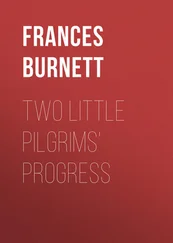Terrence, in blue overalls, grinning among the dismantled boxes, the disheveled clusters of lilacs, looked like a part of the moonlight himself. It was a scene from a ballet, blue-lighted, mysterious — nymphs, or naiads, or dryads, would materialize at any moment, and dance to an orchestra of blue-coated, man-sized crickets. The shouting of the crickets was positively outrageous. And the moon, the all-but-round moon, over the Puringtons’ shed, looked down at Terence as if it were about to make some very special and secret use of him.
“Gorry,” Terence said, holding up leafless lilac bushes in either hand, “there’s thousands of ’em. All labeled, too — pinks, whites, and purples. Not so much root as you might think, either — won’t be much trouble. Don’t have to dig the holes so deep! How you going to mix these colors, Mister Kane?”
“Not many pinks and whites, Terence — only a sprinkling — so just stick them in where they come. It will be all right. Have you got a shovel?”
“Oh, sure, I got the old faithful. I’ll begin up by the road there. Put ’em about a yard apart, I reckon—”
“All right — I’ll start behind the kitchen. No use trying to keep the topsoil, I suppose—!”
“No, you can’t help it. A little fertilizer will put that right. A little prime horse manure. I’ll fetch you over a nice wagon load, come Monday — what’s the good of feedin’ a horse, if she don’t give you manure? Yes, sir, I’ll dig it in around ’em so you’d never know the difference, the sand won’t hardly show at all!”
“Will they want water?”
“No, they won’t want no water. Dry as a bone is the best, and stomp ’em in firm with your foot, that’s all.”
“Okay, Terence! I’ll be seeing you!”
Terence struck a match, lit his clay pipe, the humorous face wrinkling in the intermittently sucked flare, the brown eyes shrewd, warm, and earthy, then stooped for his shovel and an armload of lilacs. The polished shovel blade burned blue as he turned it.
“Yes, sir, and they say plantin’ in moonlight is always lucky.”
“The better the night the better the deed!”
The Unitarian Church clock began striking — ten o’clock. Or could it be eleven? or nine?… But time, in such moonlight as this, obviously ceased to exist, became, by any ordinary human standards, incommensurable. It poured, it flowed, it was all at one level, like a sea — it was simply space, and to be measured, if at all, only by distances, as wave from wave, hand from hand, face from face. A moon, moons, half a moon — one elm-tree tip to another, frosted with pure light — the creeping diagonal of dense shadow, like enchantment, along a white picket fence — the slow tide of silver mounting up the still slope of a shingled roof, and then pouring soundlessly away over the rooftree to leave it again in primordial darkness — good god, when you stopped to think about it what a terrifying and unearthly business it was. It was enough to give you the shivers. And when you thought of the whole world, or half of it, revolving in space through this lethal and ethereal light, itself looking dead and frozen, with its cold barnacles of houses — what must it look like, seen from the moon? Dreadful no doubt; like a vast skull; or worse still, like an exposed and frozen brain. And that mackerel sky, up there, those shoals of silver fish swimming softly away over the moon, momentarily touching and dimming it, but not obscuring it, themselves brightening or darkening in serried and evanescent rows, yet so orderly and precise — and the bare dark trees reaching upward towards them — yes, the whole thing, he thought, was exactly like a quick cold shiver over the very top of the brain — frost on the eardrums, frost on the eyeballs, frost on the nerve ends! It was a taste, in advance, of the marrowy and foul bitterness of death.…
His shovel rose and fell; cutting the soft topsoil, cutting the gritty sand, hacking through the stretched vital roots of the poplars. As fast as he dug the holes, the moonlight filled them; exactly as the holes scooped on a beach fill with the sea. Cold roots, cold soil, cold sand — his hands, pressing down the lilac roots, disentangling and spreading the living radicles, clawing the mixed sand and loam over them, became themselves cold and earthlike, harshly imbrued in the stuff they worked in; they took on something of the coarse violence of earth; so that it was unpleasant, even unnatural, to touch his clothing with them. A time, times, half a time — the upright lilacs began to look like a hedge along the wall above the lane, it was beginning at last to be impressive, and he jumped down into the lane, among the dead leaves, to admire his handiwork. Yes, already the garden had changed, was changing. It had suddenly become organized. A slum! What on earth had made her think of that. Really, the extraordinary things Ee managed to think of! With a river like that, and a house and garden like this, and a moon like the end of the world! A lunar slum, a slum all compact of mercurial magic, a shape of silver vapor — the sheer impudence of it! Typical of the sort of thing one says when angry — the straws clutched at by the madman, clutched at in his own hair. Good old Enid. Or was she perhaps partially right? It was so difficult, sometimes, to distinguish between the simple and the shabby, between the plain and the merely dreary. But a slum!
A purple, a white, a purple again, a pink. Who ever heard of a pink lilac? Must be a façon de parler . By god, what a sight they would be when they all blossomed! The House of a Hundred Lilacs, they could call it, with engraved purple notepaper. Then , at any rate, Enid would like it— that , at any rate, she would like! Or would there be no “then”? Of course — how ridiculous. She hadn’t meant it as seriously as all that, it was because she was tired, a good night’s sleep would put everything to rights again, everything would be all right in the morning. A whole morning’s washing. The cesspool flooded. Old George butting in and messing up the Jim Connor business, as if it wasn’t already bad enough. Poor Ee, no wonder her nerves had been on edge. But in the morning, with the sunlight bursting in through the kitchen window, shining into the kitchen sink, silvering the tall upright cylinder of the boiler, and Buzzer singing upstairs, and himself rumbling the carpet sweeper over the dining room rug, and the kettle squealing on the stove — yes, it would probably be all right; this blasted moonlight, with its uncanny unreality, would be gone; and all these obscure pressures and shadows with it. She was probably already asleep, and lying, as she always did, with one hand reversed above her head, her elbow on the pillow, the neat small face, closed and serene, turned a little to one side. But suppose she was awake! And suppose she was still awake, when he himself went up to bed, lying awake there, but with her door closed—? Ah, that stretched and conscious silence, the taut and agonized silence as of eyes staring in the darkness, the silence as of carefully withheld breathing! And would you mind trying not to disturb me? Damn.…
“Yield to me, lilacs,” he said aloud bitterly, “and ye shall bear!”
He straightened up, for his back was beginning to be tired, heard an upper window rattling open in the Purington house, behind him, and then voices.
“Gladys?”
It was Mrs. Purington’s voice, remote, sing-song, whining.
“Yes, mother.”
“Have you got enough bedclothes? It’s going to be cold.”
“Yes, mother, enough clothes to sink a ship!”
“ That’s good.”
Cold: it was going to be cold. In fact, it was cold already. And it must be late. But they were nearly finished, thank goodness, he turned and saw that Terence had reached the bottom of the garden and come back, had begun putting in the few that were to stand along the terrace wall. A dozen more, or a dozen and a half, at most. He thrust his shovel into the dark pine-smelling woodshed, closed the door.
Читать дальше












